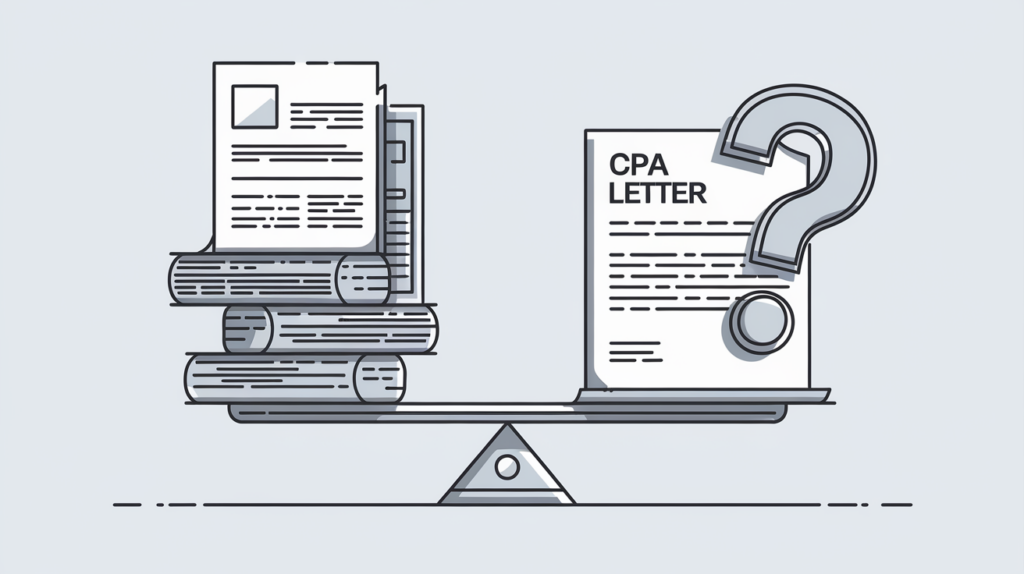Introduction
Have you ever wondered why it can be tricky to get a letter from your accountant to help with a loan application? It seems simple enough – they know your financial situation, right? Borrowers often think it should be a quick process, just ten minutes and a signature, and they’re done. But in reality, it’s much more complex than that. This article will explore why Certified Public Accountants (CPAs) are often hesitant to write or sign these “comfort letters” for their clients, even though they’re commonly used for people who are self-employed or have different types of income.
Why Lenders Ask for CPA Letters
First things first, why do lenders even want these letters?
- Proof of Income: If you don’t have a regular paycheck, like many self-employed people, it can be hard to prove to a lender that you make enough money to repay a loan. A letter from a CPA can help show your income.
- Explaining Complicated Finances: Sometimes, people have income from things besides a job, like investments or renting out property. A CPA can explain these different income sources to the lender.
- Extra Assurance: After the 2008 financial crisis, many lenders became stricter and started requiring more proof of income, even if you’re not self-employed.
The Accountant’s Perspective: Why the Hesitation?
Now, here’s the catch: CPAs have some serious concerns about writing these letters.
- Fear of Getting it Wrong: CPAs are legally responsible for the information they provide. If they make a mistake, they could get in trouble. Since they rely on the information you give them, they can’t always be 100% sure everything is accurate.
- Not Their Area of Expertise: CPAs are experts in taxes and accounting, not predicting the future. Sometimes, these letters ask them to make guesses about how well a client will do financially in the coming years, and that’s not something they’re trained to do.
- Keeping Your Information Private: CPAs have strict rules about keeping your financial information confidential. They can’t just share it with anyone without your permission.
- Time Crunches: Preparing these letters takes time, and CPAs are often super busy, especially during tax season.
- Worries About Misuse: CPAs are concerned that their letters might be used for dishonest purposes.
Making the Process Smoother
Both borrowers and CPAs can take steps to simplify the process:
- Open Communication: Borrowers should discuss their needs with their CPA early in the loan application process. CPAs should clearly explain the limitations of what they can provide and obtain written consent before releasing any information. Custom-written letters are preferable to pre-formatted lender templates, allowing CPAs to define the scope of their verification.
- Managing Expectations: CPAs should clearly communicate the scope and limitations of the letter to both the borrower and the lender, avoiding any misunderstandings about the nature of the verification.
- Exploring Alternatives: Borrowers can explore providing other financial documents, such as tax returns, bank statements, or profit and loss statements, to support their loan application. Discuss these options with the lender.
- Be Prepared and Patient: Borrowers should gather all necessary documents in advance and be patient throughout the process, as it may require some time for your CPA to prepare the letter.
Conclusion
CPA letters play a valuable role in loan applications, especially for those with non-traditional income. By understanding the challenges and fostering open communication, CPAs and borrowers can work together to navigate the process effectively and ensure a smoother loan application experience.




 anywhere
anywhere  anytime
anytime